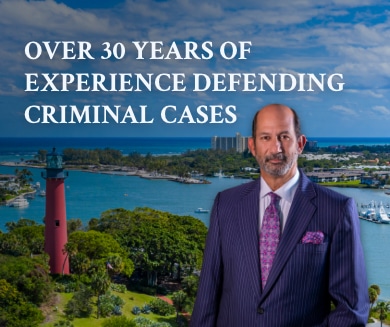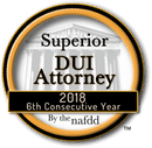Legally Reviewed By:
Brian P. Gabriel, Esquire
Stalking & Aggravated Stalking Attorney in West Palm Beach
 Stalking is a serious criminal offense that can trigger emotional distress and fear in victims. It often stems from an unhealthy obsession one has with another individual that can manifest in behavior that the recipient deems uncomfortable or even dangerous. In Florida, behaviors that by themselves may not seem harmful can be interpreted as stalking provided there is a pattern of unwanted attention.
Stalking is a serious criminal offense that can trigger emotional distress and fear in victims. It often stems from an unhealthy obsession one has with another individual that can manifest in behavior that the recipient deems uncomfortable or even dangerous. In Florida, behaviors that by themselves may not seem harmful can be interpreted as stalking provided there is a pattern of unwanted attention.
Anyone can be a victim of stalking; it is not reserved for high profile celebrities. People of all ages and backgrounds can be stalkers or victims. The police take stalking accusations seriously regardless of the alleged victim’s social or economic status. One could face significant criminal charges if accused of stalking. While any person may be flagged as a stalker, data show that men are more likely to perpetuate stalking (87%) while women are more likely to be targets of stalking behavior (78%).
If you have been accused and charged with stalking or aggravated stalking in West Palm Beach, you should familiarize yourself with the charges against you. An experienced stalking and aggravated stalking attorney can work with you to further educate you and develop a compelling defense.
Defining Stalking in West Palm Beach
A stalker is defined as a person who willfully, maliciously, and repeatedly follows or harasses another person. “Harassment” here refers to engaging in a pattern of behavior directed at a specific person which causes substantial emotional distress without a legitimate purpose.
Examples of stalking behaviors include:
- Unwanted and intrusive communication via telephone, mail, or online communications (cyberstalking)
- Repeatedly sending unwanted flowers and gifts
- Following someone or waiting for them at home, school, work, or wherever else they go
- Harassing the victim and/ or his or her friends and family online
- Damaging the person’s property or threatening to do so
- Spreading rumors or posting false information online or by word of mouth
- Actively seeking private information about the victim
Under Florida law, cyberstalking, or unwanted communication that takes place online via email, social media, or other channels, toward a person that causes substantial emotional stress, is included in the legal definition of stalking. One can be accused of cyberstalking for:
- Texting
- Sending emails
- Sexting
- Cyberbullying
- Assuming the victim’s identity online
- Posting private information or private pictures of the victim
Per Florida Statute 784.048, a person who is accused of stalking could face first degree misdemeanor charges whether the stalking took place in person or online.
Aggravated Stalking Charges in West Palm Beach
One could face enhanced penalties for stalking under four circumstances:
Credible threat: A person who stalks another person and makes a credible threat to that person that person commits the offense of aggravated stalking. A “credible threat” is a verbal or nonverbal threat that instills reasonable fear in the victim for his or her safety. This threat may also extend to the victim’s family or friends, and is made with the apparent ability for the threat to be acted upon.
Stalking after an injunction: A person who stalks an individual who has an injunction against the stalker breaks the terms of the injunction and commits a felony offense.
Second or subsequent stalking offense: A person who commits stalking the previous victim a second or subsequent time may face aggravated stalking charges.
Stalking a minor: In Florida, you could face felony charges for stalking a minor under 16.
If the defendant is convicted of any of these types of aggravated stalking, he faces penalties for a third degree felony. Prison terms of up to five years and fines of up to $5,000 are possible. If the offender is a repeat felony offender, harsher punishment may ensue.
Speak with Brian Gabriel, a dedicated criminal defense attorney in West Palm Beach, who handles accusations and charges for stalking and aggravated stalking. Attorney Brian Gabriel dedicates his practice of over 30 years to defending those accused of misdemeanor and felony offenses. Call 561-622-5575 or contact Brian Gabriel at The Law Office of Gabriel & Gabriel online for a free consultation.










